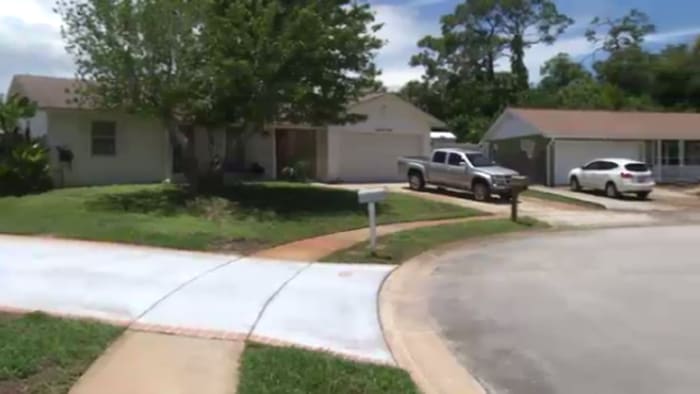Local Couple Win Airbnb Code Enforcement Challenge
TITUSVILLE, Florida. – A Titusville couple’s struggle to continue renting rooms as Airbnb marked what the owner and host considered a surprise concession by the city’s code enforcement board.
Jeffrey D. Daniel, a semi-retired commercial musician, argued that his room rentals did not violate the intent of the city’s ordinance, which reads in part: “It is unlawful for the owner of a single-family detached house to rent or rent the dwelling to one or more other persons for periods of (3) months or less.
“I thought it would be a slam dunk for the city,” Daniel said. “But we made a point of common sense.”
By a vote of 3 to 2, the Titusville Code Enforcement Board agreed that Daniel and his wife had not violated the city’s short-term rental code because they had never rented the entire housing and were always present.
The Daniels have been renting out three bedrooms in their home since last July, but in April they received an infraction notice from the city following an anonymous complaint from a neighbor.
Edward Moniz, a member of the Code Enforcement Board, lives directly across from the Daniels’ home.
Moniz recused himself from the vote despite saying he had had no “neighbourhood” contact with the Daniels in seven years.
City records show two previous code enforcement complaints against the Daniels by a neighbor in 2011: a broken fence and allegations of visitor cars blocking a neighbor’s driveway.
The Daniels said they have rented out rooms more than 30 times since last July for $60 a room in peak season, which runs from March through May.
Daniel reposted the rooms on the Airbnb website last week.
“We just thank you for spreading the story,” Daniel said.
Assistant City Solicitor Chelsea Farrell told council that any changes to the existing ordinance would be
erase the city’s “grandfather” status authorized by a Florida law established in 2011.
Law 508 essentially blocks any new rules on vacation rentals after 2011. It reads in part:
“A local law, ordinance or regulation cannot restrict the use of vacation rentals…unless a law or ordinance was in effect before June 1, 2011.”
Orlando attorney Jacob Stuart told News 6 that in his opinion the Titusville case should never have come before the code enforcement board.
“The law is black and white,” Stuart said. “If someone stays in the house or residence and rents a room like an Airbnb, the city and state under current law have no reason to interfere.”
The city reserved the right to appeal the decision within 30 days.
Stuart cautioned that the Titusville decision does not set a sweeping legal standard.
“I think people need to review each city’s ordinance to check that there is no nuance in the language,” he said.
For more information on Florida short-term rental ordinances and regulations, click or tap here.
Copyright 2019 by WKMG ClickOrlando – All Rights Reserved.


Comments are closed.